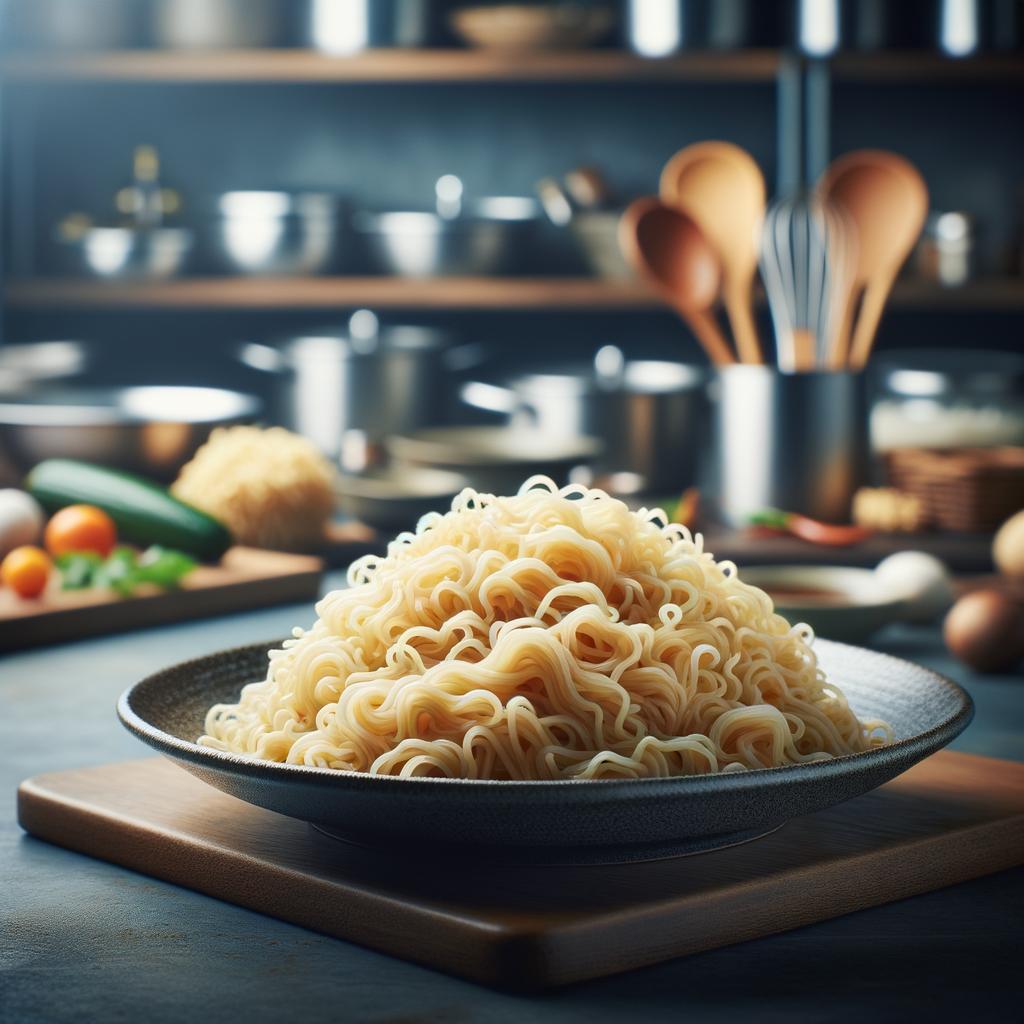Jjolmyeon Noodles

Description
Jjolmyeon noodles are a delightful culinary curiosity originating from South Korea. These noodles have a distinctive appearance, a vibrant off-white hue with a slight sheen that hints at their chewy texture. They are made from wheat flour and starch, often corn or potato, which gives them their characteristic elasticity and firm bite. Jjolmyeon noodles have a mildly sweet flavor profile, making them a versatile ingredient that can absorb and enhance the flavors of the dishes they are incorporated into. Their unique texture sets them apart from other noodles, as they retain their chewiness even after prolonged cooking, a trait that makes them particularly appealing in a variety of dishes.
Primary Uses
The primary use of jjolmyeon noodles is in the eponymous dish, Jjolmyeon, a popular Korean dish that combines these chewy noodles with a spicy and sweet gochujang-based sauce, fresh crisp vegetables, and often a boiled egg or some protein. They are also used in various other Korean dishes like Bibim Jjolmyeon (mixed noodles) and Jjamppong Jjolmyeon (spicy seafood noodle soup). Beyond their culinary uses, Jjolmyeon noodles also hold cultural significance in Korea, often being served at celebrations and gatherings, symbolizing longevity and happiness.
History
The story of jjolmyeon noodles is a fascinating tale of serendipity. They were reportedly invented in the 1970s when a noodle factory in South Korea accidentally produced overly thick and chewy noodles. Rather than discarding them, the factory owner decided to sell them at a discounted price. These noodles quickly gained popularity for their unique texture and were eventually named 'jjolmyeon', which translates to 'chewy noodles'. Over time, these noodles have become a staple in Korean cuisine, with the dish Jjolmyeon being a beloved comfort food for many.
Nutritional Information
Jjolmyeon noodles are a good source of carbohydrates, providing energy for daily activities. They also contain some protein and are low in fat. However, they are not particularly high in vitamins and minerals, unlike whole grain noodles or those made with vegetables. The health benefits of consuming jjolmyeon noodles largely depend on how they are prepared and what they are served with. When paired with a variety of vegetables and lean proteins, they can be part of a balanced meal. However, as with all foods, moderation is key to avoid consuming too many calories or too much sodium, particularly when they are served with a spicy, sweet, and salty sauce.

